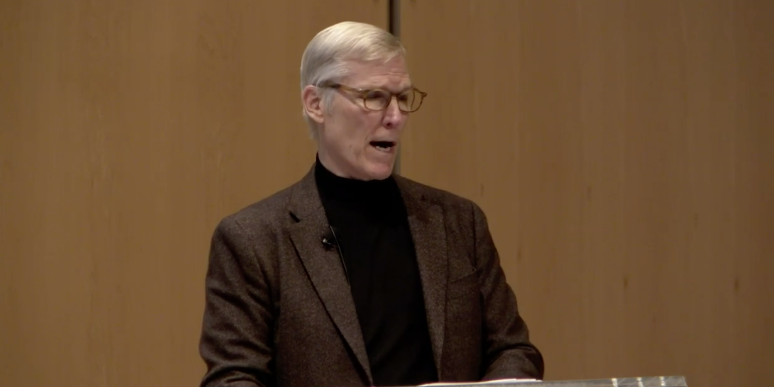The Bill & Melinda Gates Agricultural Innovations (Gates Ag One) has announced $35 million in support for a Cambridge University-led project working to develop self-fertilizing crops for African farmers.
The grant will support the Engineering Nitrogen Symbiosis for Africa (ENSA) research programme over the next five years. The research consortium focuses on improving nutrient uptake by food plants to reduce the need for fertilizer across some of the world’s most degraded land.
“The pioneering work of ENSA is fundamental to level the playing field for smallholder farmers in Africa, leveraging the latest crop technology to ensure all communities have the chance to thrive,” said Joe Cornelius, CEO of Gates Ag One, in a statement announcing the funding.
“Breakthrough advances in crop science and innovation mean intractable challenges like nutrient uptake and soil health need not hold back agricultural development. We’re delighted that Gates Ag One can support ENSA to continue its work to meet the needs of smallholder farmers,” he added.
As much as 65% of productive land in Africa is considered degraded, according to the United Nations, which means crop yields are only around a third of the global average.
Fertiliser is often a costly and inaccessible resource for many smallholder farmers in Africa, which accounts for just 4% of global fertilizer consumption. Africa relies heavily on fertiliser imports from Russia, and the ongoing war in Ukraine has driven up prices by up to 150%.
Developing crops with a greater ability to take in nutrients through natural processes would therefore automatically increase yields without the need for fertilizer.
ENSA scientists are breeding plants to maximize the naturally occurring processes in which fungi and bacteria help crops to convert more nutrients from the soil.
ENSA is the latest research project to receive funding from Gates Ag One, which recently announced a grant for the Realizing Increased Photosynthetic Efficiency (RIPE) project, of which the UK-based Cambridge University is a collaborator.
A not-for-profit subsidiary of the Bill & Melinda Gates Foundation, Gates Ag One was created to leverage global crop science to meet the needs of smallholder farmers in Africa and South Asia.
It focuses on accelerating research that enhances the biological processes of six priority food crops: cassava, cowpea, maize, rice, sorghum, and soybean.
The organisation works to accelerate breakthrough agricultural research to meet the urgent and neglected needs of smallholder farmers in sub-Saharan Africa and South Asia.
Out of the conviction that all lives have equal value, Gates Ag One serves the interests of smallholder farmers, who are most exposed to climate shocks yet lack the access that others have to the latest agricultural innovations.
Gates Ag One works to level the playing field and empower smallholder farmers to transform their agricultural productivity, nutrition security, and climate resilience.
ENSA’s work optimizes the interactions between crops and microorganisms to make better use of nutrients already present in the air and the soil, including nitrogen and phosphorus.
At present, only legumes like beans and peas can naturally convert nitrogen from the soil through bacteria known as rhizobia.
Replicating this ability in other crops, such as cereals, would sustainably increase the yields of critical staple foods.
“African agriculture is at an inflexion point, with vastly increasing demand at a time when supply is at risk, especially due to a changing climate,” said Giles Oldroyd, Director of the Crop Science Centre, another partner on the project.
“The outcomes of this work have the potential to see gains as great as those from the Green Revolution, but without relying on costly and polluting inorganic fertilizers.
"Increasing production of crops sustainably in smallholder farming systems, like those in sub-Saharan Africa, directly addresses some of the worst poverty on the planet,” he added.
Latest Stories
-
NDC administration will reverse all ‘last-minute’ gov’t employee promotions – Asiedu Nketiah
4 minutes -
Kudus sights ‘authority and kingship’ for elephant stool celebration
5 minutes -
We’ll embrace cutting-edge technologies to address emerging healthcare needs – Prof. Antwi-Kusi
38 minutes -
Nana Aba Anamoah, Cwesi Oteng to attend Philip Nai and Friends’ charity event
43 minutes -
Environmental protection officers receive training on how to tackle climate change
46 minutes -
CLOGSAG vows to resist partisan appointments in Civil, Local Government Service
2 hours -
Peasant Farmers Association welcomes Mahama’s move to rename Agric Ministry
2 hours -
NDC grateful to chiefs, people of Bono Region -Asiedu Nketia
2 hours -
Ban on smoking in public: FDA engages food service establishments on compliance
2 hours -
Mahama’s administration to consider opening Ghana’s Mission in Budapest
2 hours -
GEPA commits to building robust systems that empower MSMEs
2 hours -
Twifo Atti-Morkwa poultry farmers in distress due to high cost of feed
2 hours -
Central Region PURC assures residents of constant water, power supply during yuletide
2 hours -
Election victory not licence to misbehave – Police to youth
2 hours -
GPL 2024/2025: Nations thrash struggling Legon Cities
2 hours

